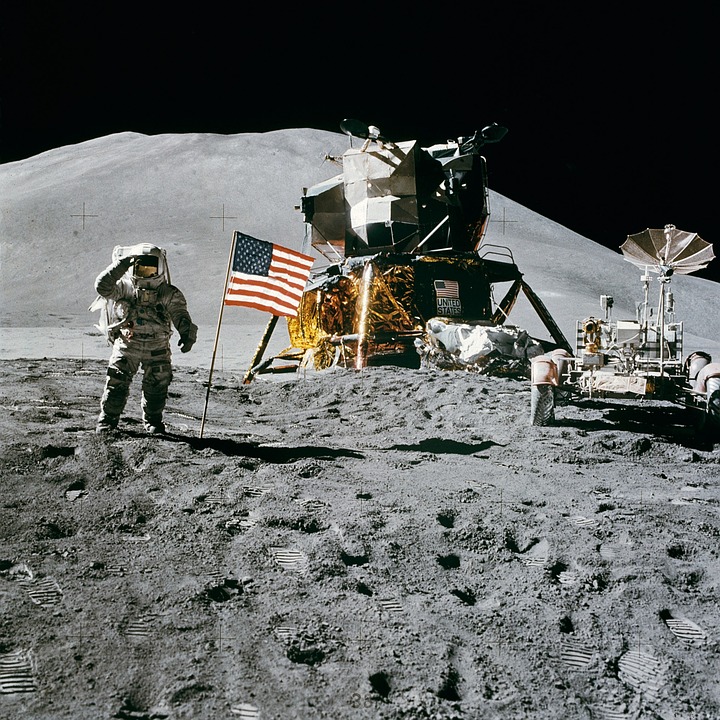
The Moon is the nearest celestial body from Earth. Using modern rocket and spacecraft tech, the journey can be made in 3 days, but it has been over 45 years since the final Apollo mission ended. Only 12 people have ever walked on the Moon and the tech to get there and get back safely has grown by leaps and bounds over the course of the next 4 decades.
Even Elon Musk in his now famous "Making life Multiplanetary" presentation last year declared, "It's 2017, we should have a Lunar base by now! What the hell is going on?"
So the obvious questions are why haven't space agencies and private space industry players already started building on the Moon. Commander Chris Hadfield, an ex-astronaut who lived and worked on the International Space Station, said this in conversation with Business Insider. First, it is important to understand just why getting to the Moon is vital.
The Moon is poised to be the perfect place to set up a fuel station for spaceships and rockets that are journeying into deep space and it makes perfect sense as lifting off Earth carrying all the fuel needed for deep space travel makes it difficult. Lift off light from Earth, refuel on or in the vicinity of the Moon, and carry on travelling into the cosmos is a perfect plan that even Musk actively advocates.
Research fuelled by space telescopes based on the Moon is another great option that is yet to be fully realised, besides making Moon the ultimate space holiday destination, despite the horrifying ways human tissues interact with Moondust.
But the Moon is still largely unexplored, save for a few orbiters and lunar landers. Only 12 humans have ever walked on the Moon. "A permanent human research station on the moon is the next logical step," says Chris Hadfield.
The Moon is only three days away and that right now, with prevailing technologies, he noted and added: "We can afford to get it wrong, and not kill everybody, and we have a whole bunch of stuff we have to invent and then test in order to learn before we can go deeper out."
The real reason humans have not gone to the Moon is simple -- it is money and politics. NASA is arguably the most important, well-funded, and influential space agencies in the world and it is shrinking. It is facing huge budget cuts and its share in the country's spending has fallen dramatically over the last 50 years.
"NASA's portion of the federal budget peaked at 4% in 1965. For the past 40 years it has remained below 1%, and for the last 15 years it has been driving toward 0.4% of the federal budget," said Apollo 7 astronaut Walter Cunningham, during a 2015 Congressional testimony.
NASA in 2005 reported that going back to the Moon is expensive. It would cost a cool $104 billion—$133 bn in today's money. In comparison, the entire Apollo programme starting in the 1960s would only cost near $120 bn in today's dollars, notes the report.
The next hurdle is politics. "Manned exploration is the most expensive space venture and, consequently, the most difficult for which to obtain political support," Cunningham said during his testimony, reports the Scientific American. Unless the government gives more money, "this is just talking that we're doing here."
When President Donald Trump took office, he promptly scrapped the Mars programme envisaged by President Obama, who had scrapped his predecessor's Moon strategy. NASA has been dealing with politicians changing their primary space exploration goals every time an administration changes.
"We're always asked to change directions every time we get a new president, and that just causes you to do negative work, work that doesn't matter," Scott Kelly, the astronaut who had spent nearly a year in space aboard the International Space Station (ISS), told the Washington Post in January this year.
"I just hope someday we'll have a president that will say, 'You know what, we'll just leave Nasa on the course they are on, and see what Nasa can achieve if we untie their hands,'" he added.
Presidents and politicians like things to happen in their name. Space missions need to last many administrations because planning, developing, building, testing, and eventually launch will take decades, so Presidents do not like to have programmes that will come to fruition two administrations in the future, Hadfield points out.
This precisely sums it up why humans have not been to the Moon for over four decades and people reaching Mars might not happen through a government-backed agency because of this reason.









